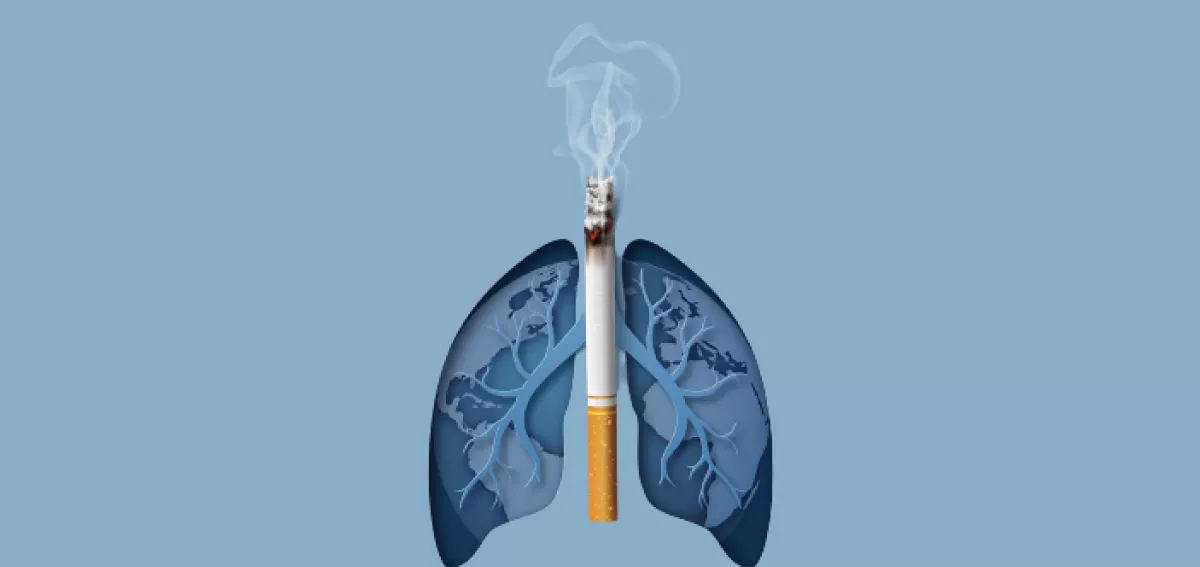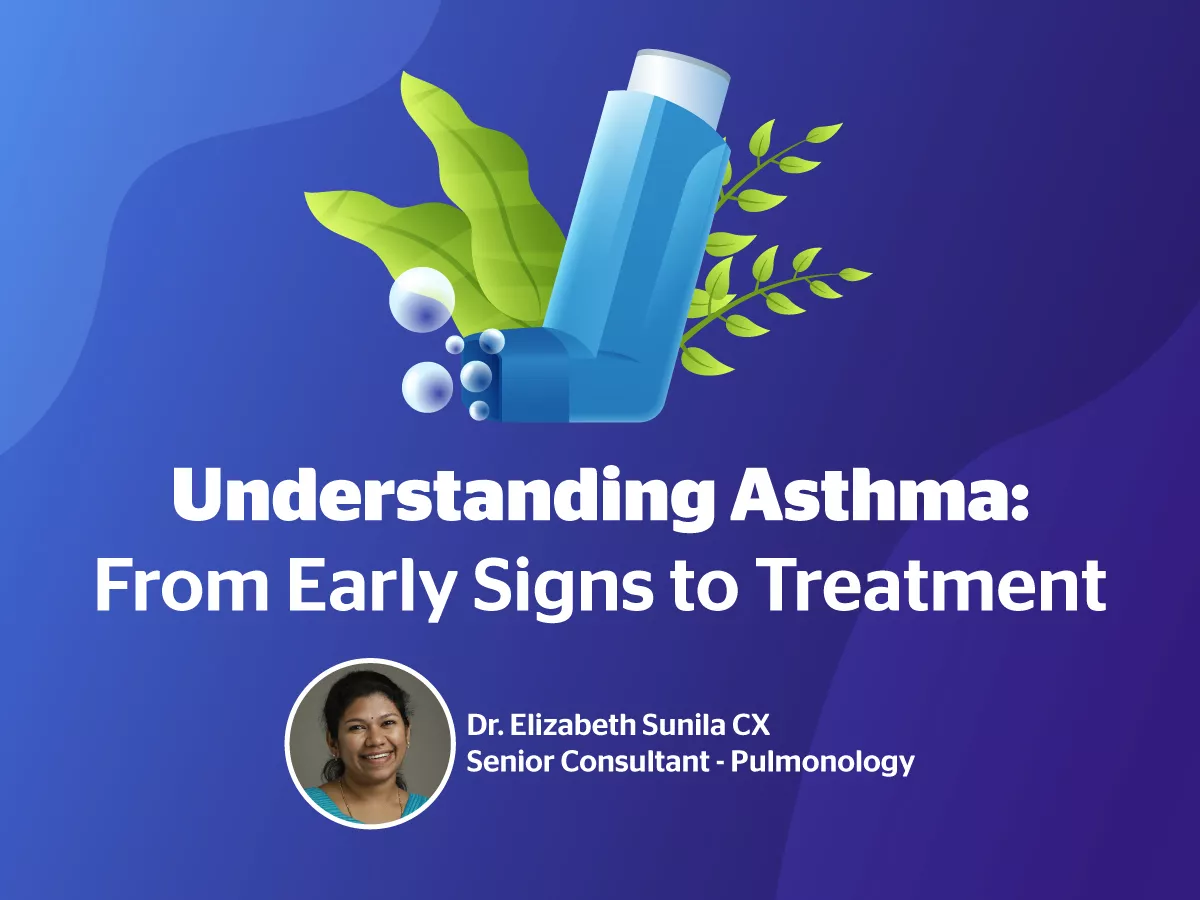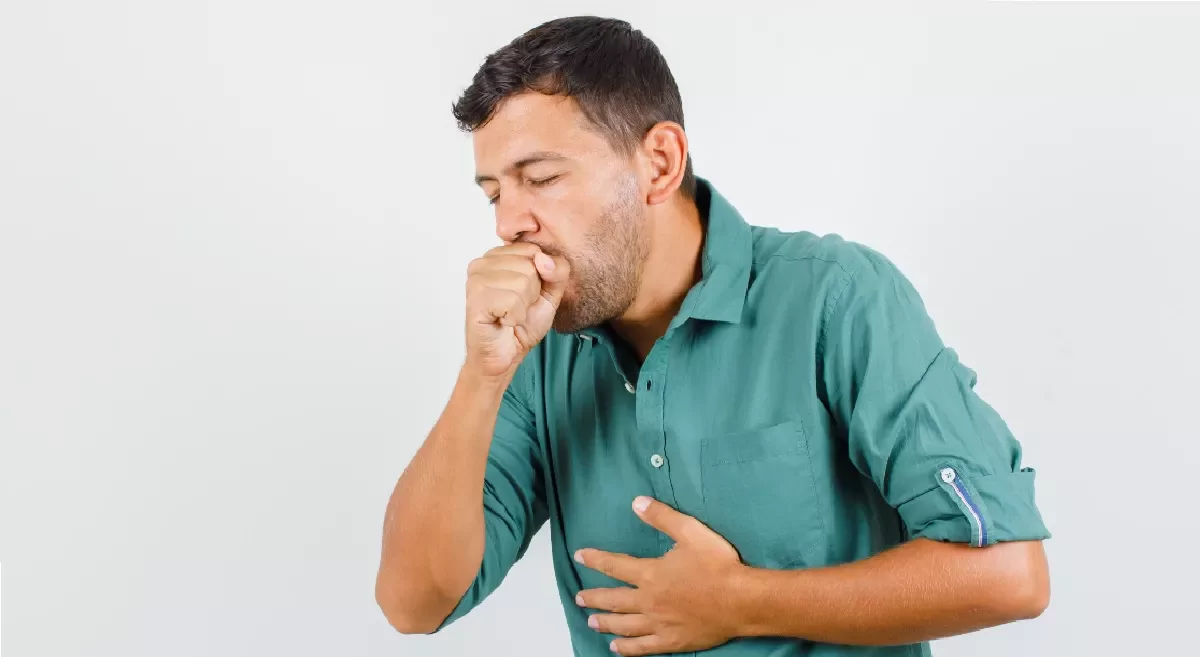One of the most significant steps you can take to enhance your health is to stop smoking, which is applicable regardless of your age or the length of time you have been smoking. A chemical present naturally in tobacco (nicotine) is addictive to many people who smoke. It may be difficult to quit smoking as a result of this addiction. However, there are effective treatments available to help you quit smoking, which is fantastic news.
Even after following the given steps & if you still need medical help, then it's better to consult with one of the best pulmonologist in Kochi as Kerala is renowned for top hospitals with advanced facilities
Some of the best practices to quit tobacco include:
1. Nicotine replacement
Consult with your doctor about nicotine replacement therapy. Here are some suggestions:
- An inhaler or nasal spray that contains nicotine
- Nicotine patches, gum and lozenges that can be purchased without a prescription
- Non-nicotine stop-smoking medicines prescribed by a doctor, such as bupropion and varenicline
There are short-acting nicotine replacement therapies that can help you overcome intense cravings, and these include nicotine gum, lozenges, nasal sprays and inhalers. These quick-acting treatments are usually safe to use with long-acting nicotine patches or non-nicotine stop-smoking medications.
Electronic cigarettes (e-cigarettes) have recently attracted much attention as a viable alternative to smoking regular cigarettes. e-Cigarettes, however, are not any safer or more effective than nicotine replacement therapy in helping individuals quit smoking.
2. Avoid triggers
Tobacco cravings are most likely to be stronger in places where you smoked or chewed tobacco frequently, such as at parties or bars or when you are stressed or drinking coffee. Find out what your triggers are and make a plan to avoid or overcome them without using cigarettes.
Do not put yourself in a situation where you will start smoking again. If you have the habit of smoking while talking on the phone, you can keep yourself occupied by doodling with a pen and paper instead of smoking.
3. Try relaxation techniques
Smoking might have been a coping mechanism when stress levels were high. Fighting a cigarette urge can be stressful in and of itself. Muscular relaxation, deep breathing, yoga, visualisation, massages and listening to peaceful music are all effective techniques to relieve stress.
4. Postponement
If you are about to give in to your cigarette addiction, remind yourself that you have to wait another 10 minutes and do something to occupy your time during that period. Try heading to a smoke-free public area. These basic techniques may be enough to help you overcome your cigarette addiction.
5. Chew it up
To resist a tobacco urge, give your mouth something to do. Sugarless gum or hard sweets can be chewed. Alternatively, eat raw carrots, almonds or sunflower seeds for a crisp and flavourful snack.
6. Do not limit yourself to 'just one
Even when you decide to quit smoking, you may tend to do it for one last time, but do not make the mistake of thinking you can end there. Even smoking only one cigarette often leads to the smoking of a second. And you may start smoking again.
7. Get some exercise
Physical activity can help divert your attention away from your tobacco cravings. Short spurts of movement, such as sprinting up and down the stairs a few times, will help you get rid of your cigarette urge. You can also take a walk or jog outside.
Try squats, sprinting in place, deep knee bends, push-ups or walking up and down a flight of stairs if you are at home or work. If you do not enjoy exercise, consider woodworking, praying, stitching or keeping a journal. Cleaning or filing papers can also be used as a distraction.
How to quit chewing tobacco
People, places or activities that make you desire to chew or dip are known as triggers. Knowing your triggers might assist you in developing strategies to deal with them. Triggers vary from person to person. Some of them could be as follows:
- Having nightmares or waking up in-between sleep
- Post-meals or during breaks
- Driving
- Stress or pain
- Feeling nervous, angry, impatient or bored
- Looking at someone else chewing or smoking
- Drinking coffee or wine
- Before bedtime
- Watching TV or a live game
Cravings can be caused by triggers. Cravings can be defined as the strong urge to chew or dip that lasts for a short period. All urges are fleeting and will fade away with time.
Benefits of quitting tobacco
One of the most significant steps people can take to enhance their health is to commit themselves to quit tobacco. Quitting smoking can have several benefits:
- It improves your quality of life and overall health.
- It can add up to ten years to your life expectancy and minimises the chance of premature death.
- It lowers the risk of a variety of negative health consequences, such as poor reproductive health, chronic obstructive pulmonary disease (COPD), cardiovascular disease and cancer.
- It helps patients who have already been diagnosed with coronary artery disease.
- It has benefits for the health of pregnant mothers and their unborn children and newborns.
- It lessens the financial toll that smoking has on smokers, the healthcare system and society.
While it is better to quit smoking earlier in life, quitting at any age is beneficial to your health. Quitting smoking is also the single most effective approach to protect family members, employees, friends and others from the dangers of second-hand smoke inhalation.
FAQs:
1. What are the health issues of smoking?
Smoking causes cancer, stroke, diabetes, lung diseases, COPD and heart disease
2. How does tobacco affect the brain?
Nicotine stimulates the adrenal glands to release the hormone epinephrine (adrenaline) and increases the chemical messenger dopamine levels in the brain.
3. How does tobacco affect the heart?
Smoking accelerates the production of plaque in blood arteries.
4. What is the most toxic substance in tobacco?
Lead and cadmium are both toxic substances present in tobacco.
5. Which symptom is a short-term effect of tobacco?
Smoking has several short-term consequences, including bad breath, fatigue and a decrease in energy levels.








